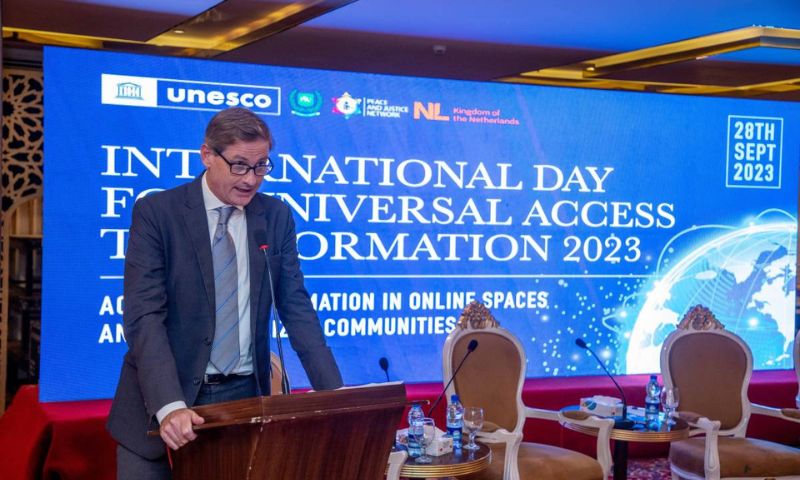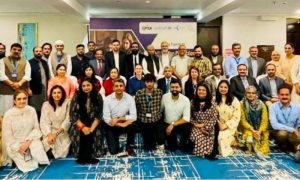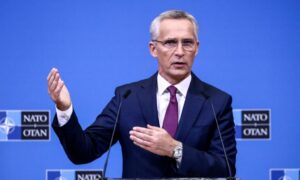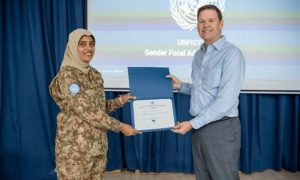ISLAMABAD: UNESCO, in collaboration with Peace & Justice Network (PJN) and the Pakistan Information Commission (PIC), has initiated efforts to improve access to online information, with a specific focus on marginalized communities in Pakistan.
In commemoration of UNESCO’s International Day for Universal Access to Information, a conference was organized by civil society, led by the PJN and featuring partnerships with the Pakistan Information Commission and the Embassy of the Kingdom of the Netherlands.
The conference, held in Islamabad, addressed the pressing issue of “The Importance of Online Space for Access to Information” as part of this year’s global agenda. It aimed to identify and address the challenges faced by marginalized communities in accessing information online.
The conference underscored the critical importance of ensuring equal access to information for individuals with disabilities, transgender individuals, religious minorities, and other marginalized groups. Access to information is seen as a catalyst for empowerment, justice, and fostering inclusive participation in society.
The “leave no one behind” principle championed by the United Nations served as a guiding principle. It emphasized the necessity for these groups to harness online spaces effectively.
Online spaces have evolved into indispensable resources for numerous communities, particularly marginalized ones. These spaces not only facilitate public discourse but also offer economic opportunities. For marginalized communities, often burdened with social stigma, online spaces can serve as platforms for social and economic upliftment. Thus, the integration of a rights perspective into online spaces and the internet as a whole is imperative.
UNESCO Advocates Principles of Openness
UNESCO advocates an approach that upholds the principles of openness and accessibility for all, fostering pluralism.
Senator Farhatullah Babar highlighted the important role of government institutions in expanding access to information to fortify democratic values within the nation. Shoaib Ahmad Siddiqui, Chief Information Commissioner, stressed the importance of proactive disclosure to cultivate a culture of accountability and transparency.
Hajo Provo Kluit, Deputy Ambassador of the Kingdom of the Netherlands, recognized the significance of information access for marginalized groups in strengthening institutional foundations.
During the session titled ‘Connecting the Disconnected,’ moderated by Farieha Aziz, Co-founder of Bolo Bhi, experts Mukhtar Ahmed Ali, Mary James Gill, Usama Khilji, and Barrister Yasser Latif Hamdani shed light on the challenges faced by citizens when the government restricts or shuts down internet access. Such actions severely curtail citizens’ ability to exercise their rights, including the right to access information and participate in democratic processes. They emphasized the necessity of a robust policy framework to address internet disruptions while safeguarding access to information and fundamental rights.
To raise awareness among key stakeholders regarding online information access, especially for marginalized groups, a session was moderated by Nayyab Ali, Gender Advisor at PJN, and Syed Raza Ali, CEO of PJN. Following extensive discussions involving representatives from marginalized communities and experts from various backgrounds, including Moon Ali, Abia Akram, Mary James Gill, Jayaa Jaggi, and Syed Raza Ali, recommendations and action plans were formulated and presented to relevant authorities, including the Ministry of Human Rights.

























